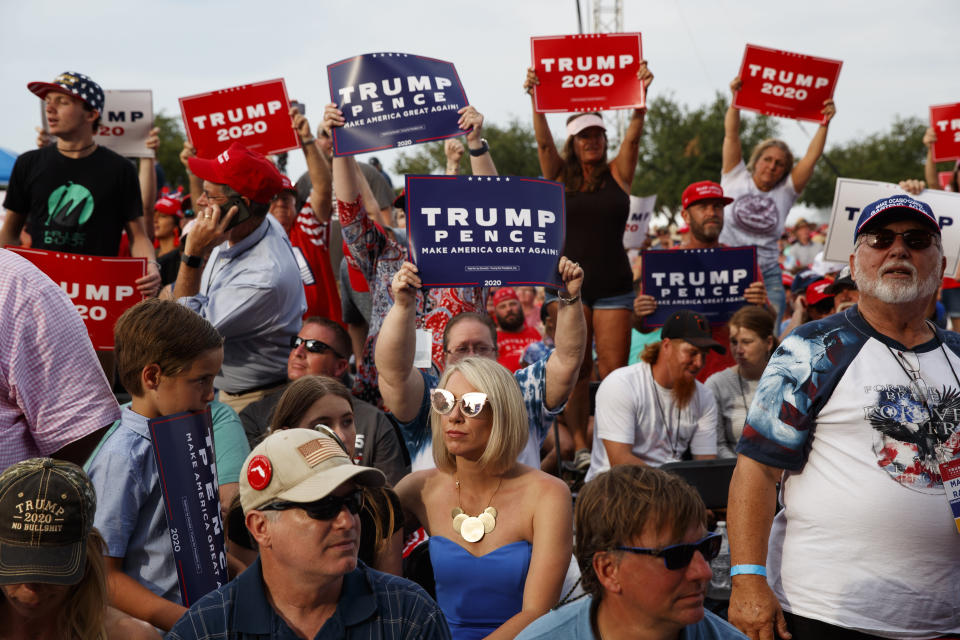'Secret' voters favored Trump over Clinton 2 to 1
WASHINGTON — Some supporters of Donald Trump proudly tout their loyalty with “Make America Great Again” T-shirts and hats, taking delight in the irritation they may cause critics of the president. There’s even a thriving market for Trump tattoos, which take that provocation to an entirely new — not to mention permanent — level.
But some who voted for Trump kept quiet about casting their vote for him in the 2016 election, fearing condemnation from friends, family and co-workers. A new study finds that “secret” Trump voters were twice as common as “secret” voters for Hillary Clinton. In fact, more than half of all secret voters were Trump supporters.
The study may explain why polls so badly misjudged the election, practically handing it to Clinton. The apparent hesitation people may have had about admitting support for Trump is a variation on the so-called Bradley effect, in which poll respondents overstate support for an African-American candidate.

Given how divisive Trump remains, the same effect could repeat itself in 2020. Polls in battleground states have recently shown Trump falling behind former vice president and Democratic presidential contender Joe Biden. But these polls, like the ones that showed Clinton winning in 2016, could be failing to tap into a secret reserve of support for Trump.
The new study, “Motivated Secrecy: Politics, Relationships, and Regrets” was co-authored by Michael Slepian and Rachel McDonald of Columbia Business School, Jessica Salerno of Arizona State University and Katharine Greenaway of the University of Melbourne. It will be published in the social science journal Motivational Science.
The study began just after the surprising 2016 presidential election results. The researchers located 1,000 people “who secretly voted for someone other than whom they publicly claimed to have voted for.” They found that 53 percent of these secret voters voted for Trump, while 27 percent voted for Clinton. Another 19 percent voted for a third party candidate (some believe that support for fringe candidates like Jill Stein and Gary Johnson swung the election to Trump).
"Trump voters were more concerned about their reputation than Clinton supporters,” Slepian of Columbia told Yahoo News. They were aware of the “reputational implications of supporting Trump,” fearing that they may be grouped with some of Trump’s more objectionable statements, as well as his more fringe supporters, including those who espoused xenophobic or white supremacist viewpoints.
“Guilt or regret was something we saw our participants express,” Slepian said.
The study found that “the more conservative” the study’s participants, “the less they regretted keeping their vote secret.” Clinton supporters had a different regret: “Liberal participants may have wished that they voiced their support for Clinton in advance of the election,” the authors write.
The study also found that secret voters were most likely to hide their political preference from family. This should not be surprising, as there have been many accounts of a spouse discovering that his or her loved one is a Trump supporter. In 2017, a woman wrote in MEL Magazine of learning that her husband, who claimed to have voted for libertarian candidate Johnson, had actually voted for Trump. The woman, a sexual assault survivor, was horrified.
“It was like being punched in the gut. I was so flabbergasted, so hurt, so betrayed,” she wrote, explaining a little later that Trump “embodies everything I stand against and everything we don’t want our children to be.” She concluded that article by describing how she was coming to terms with her husband’s decision to vote for Trump.
Slepian, the study’s lead author, told Yahoo News that many Trump supporters feared “getting in arguments with people and creating conflicts with those around them,” electing instead to keep quiet. “They didn’t have anyone to talk to,” Slepian explained.
Such feelings of social isolation can drive people to online communities, where their prejudices are accepted, but also amplified and reinforced. That, in turn, could further stifle civic discourse, hardening convictions and silencing debate.
“These are conversations,” Slepian says, “people need to have.”
_____
Read more from Yahoo News:



